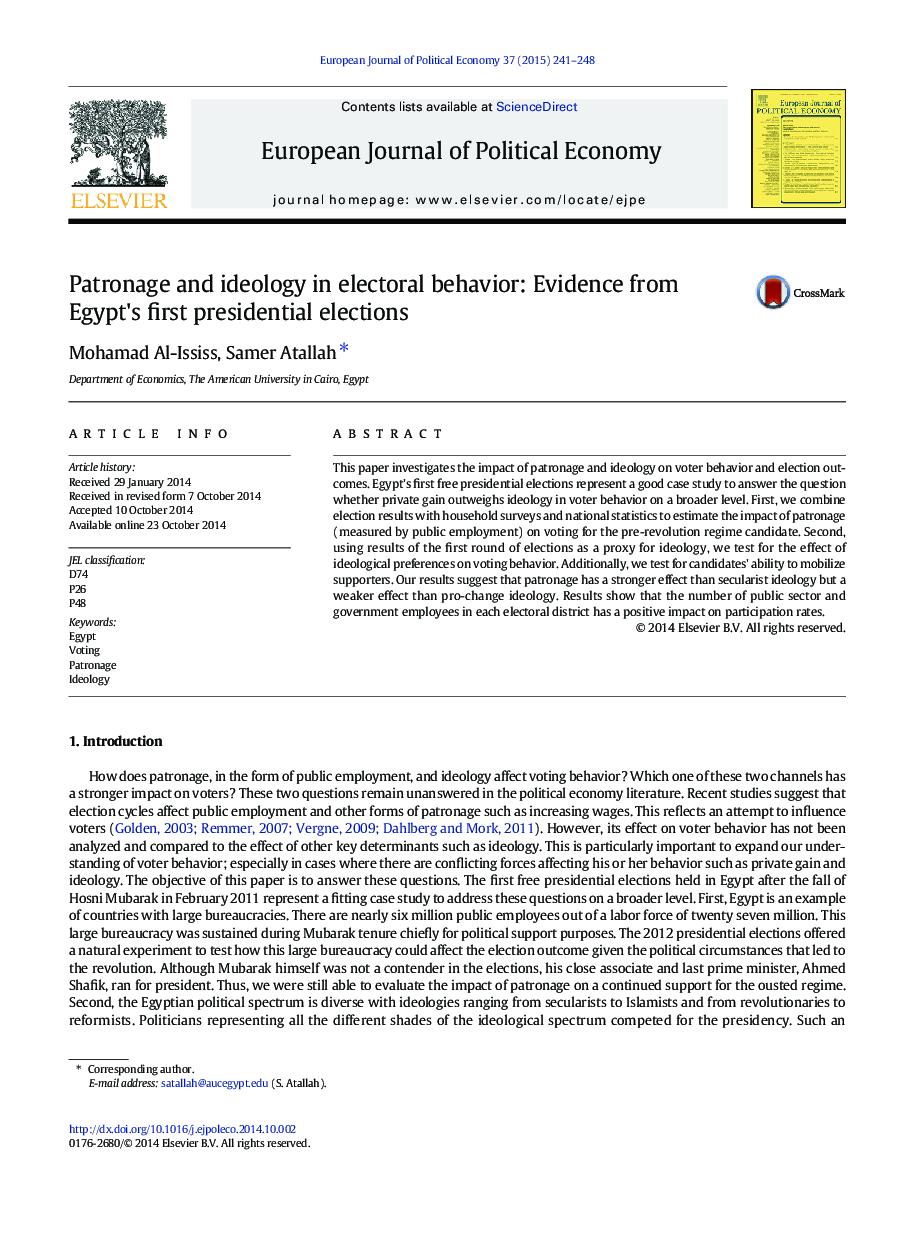| Article ID | Journal | Published Year | Pages | File Type |
|---|---|---|---|---|
| 5067976 | European Journal of Political Economy | 2015 | 8 Pages |
â¢We investigate the impact of Egypt's large bureaucracy on 2012 elections results.â¢We compare the effect of patronage to that of voter's ideological preferences.â¢Patronage effect is stronger than secularist ideology for the incumbent votes.â¢Patronage effect is weaker than pro-change for the incumbent votes.
This paper investigates the impact of patronage and ideology on voter behavior and election outcomes. Egypt's first free presidential elections represent a good case study to answer the question whether private gain outweighs ideology in voter behavior on a broader level. First, we combine election results with household surveys and national statistics to estimate the impact of patronage (measured by public employment) on voting for the pre-revolution regime candidate. Second, using results of the first round of elections as a proxy for ideology, we test for the effect of ideological preferences on voting behavior. Additionally, we test for candidates' ability to mobilize supporters. Our results suggest that patronage has a stronger effect than secularist ideology but a weaker effect than pro-change ideology. Results show that the number of public sector and government employees in each electoral district has a positive impact on participation rates.
